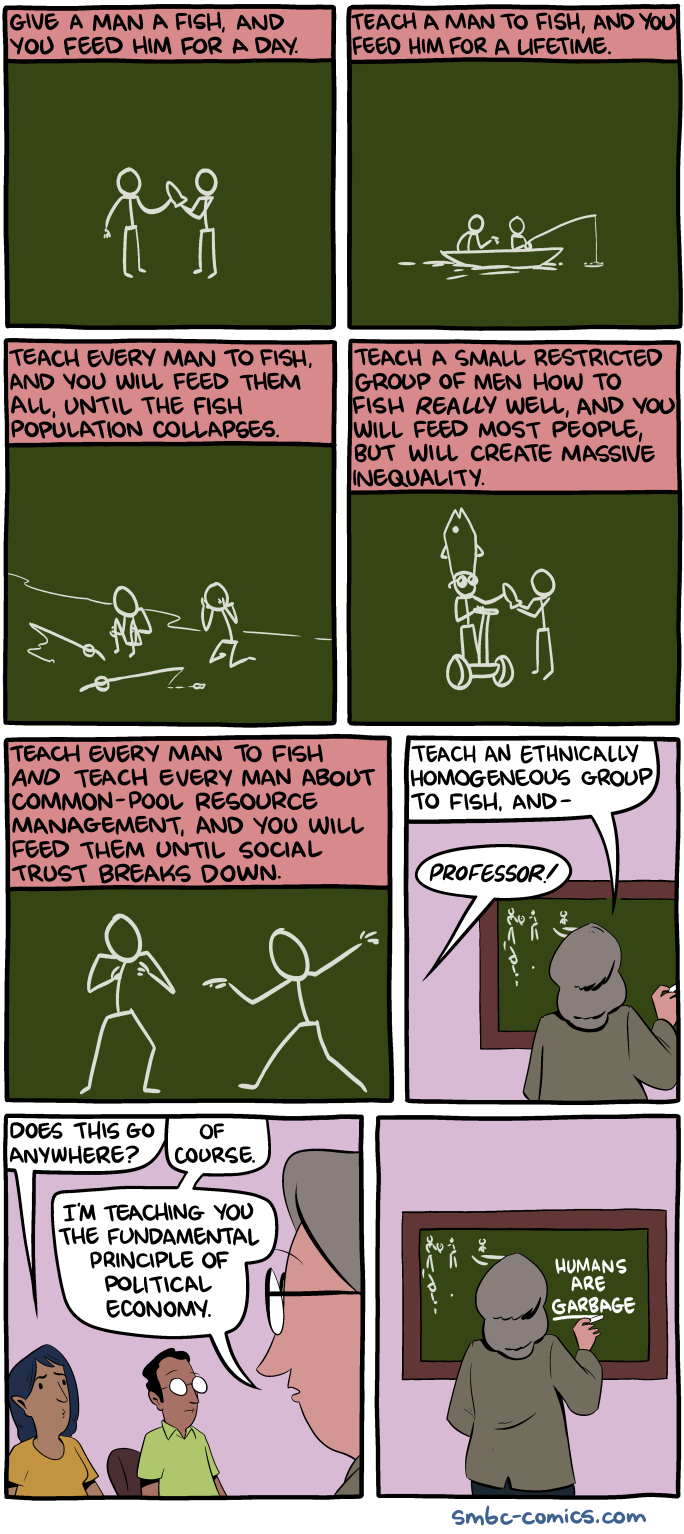Tuesday Afternoon Links!
* Public showings of the Tolkien Manuscripts at Marquette, 2016-2017.
* Don’t Panic, But There’s An Asteroid Right Over There.
* Why is the keynote speech such a train wreck at most academic conferences?
* Because it’s that time of year again: my two-part piece from Inside Higher Ed from a few years back on entering the academic job market as an ABD, 1, 2. But of course:
* How to Do a Better Job of Searching for Diversity.
* How could anyone think graduate students shouldn’t have a Plan B?
* Great teaching document: Some Notes on How to Ask a Good Question about Theory That Will Provoke Conversation and Further Discussion from Your Colleagues.
* And more: Making a classroom discussion an actual discussion.
* Trump: graft :: Clinton : paranoia.
* And marrying the last two links: One in Six Eligible Voters Has a Disability.
* “Debate” and the end of the public sphere.
* Let history be our judge: Pepe the Frog, an explainer.
* If Hillary Had to Drop Out, Here’s How a New Democratic Candidate Would be Chosen. Former DNC chairman calls for Clinton contingency plan.
* Researchers at the Karadag Nature Reserve, in Feodosia, Russia, recorded two Black Sea bottlenose dolphins, called Yasha and Yana, talking to each other in a pool. They found that each dolphin would listen to a sentence of pulses without interruption, before replying.
* Ancient Black Astronauts and Extraterrestrial Jihads: Islamic Science Fiction as Urban Mythology.
* Getting Restless At The Head Of The Class.
* CFP: this xkcd.
* Demystifying the Great Pacific Garbage Patch.
* Going viral this week: extinction illusions.
* In search of the universal language.
* Reported Concussions in Youth Soccer Soar a Mere 1,600 Percent in 25 Years, According to Study.
* Nice work if you can get it: Wells Fargo won’t claw back $125m retirement bonus from exec who oversaw 2m frauds.
* Sexting in the seventh grade.
* Colin Kaepernick’s Protest Is Working.
* How the sugar industry has distorted health science for more than 50 years.
* Stories that should be more exciting than they are: We Were Wrong About Where the Moon Came From!
* I read Jason Shiga’s Demon as a crowdfunder — it’s great. Check out the first volume when it comes to print next month.
* Special providence: Catfish Falls From The Sky, Hits Woman In The Face.
* The organizing economic metaphor of all of Against Everything is artificial scarcity. The concept usually refers to the way that monopolistic sellers exploit their excessive market power to restrict supply so they can raise prices. Greif’s view is more capacious and idiosyncratic: He describes a culture where the affluent, at sea in a world of abundance, engage in the elaborate restriction of their own demand (to kitsch diners, ethnic food, inappropriately youthful sexual partners). This turns what could be unfussy gratification into resource-intensive performance. On one level, this is about making a technically meaningless life more diverting, but it also gives our atomized selves the comfort of belonging. It serves to differentiate “people like me” from those other, worse people—those without access to the most current information, say, or simply the economic means to act on it. What gives n+1’s economistic turn its authority and novelty is the way Greif and his colleagues show that the market is not, as someone like Gary Becker had it, a bazaar untainted by sinister, irrational notions (discrimination, exploitation, class prejudice), but a site where those things are given free play under cover of neutral utility-maximizing exchange. They have taught us to speak the softer insights of theory (with its sensitivity to symbolic difference and its hermeneutics of suspicion) in the hardheaded but incantatory vernacular of the powerful.
* The New Yorker remembers the Wilmington coup of 1898.
* And I’m catching up late, but man oh man, Bojack Horseman is a good show.

Good Morning, It’s Monday Links
* TNG and the limits of liberalism (and, not incidentally, why I always recommend The Culture novels to Star Trek fans). And one more Trek link I missed yesterday: An oral history of “The Inner Light.”
* Your obligatory 9/11 flashback this year was all about Air Force One. And if you need more there’s always Tom Junod’s “The Falling Man.”
* Sofia Samatar: Risk Is Our Business.
* We are, after all, rigged for gratification, conditioned to want to “feel good.” We seek pleasure, not pain; happiness, not misery; validation, not defeat. Our primary motivators are what I have previously called the “Neuro P5”: pleasure, pride, permanency, power, and profit — however these may be translated across socio-cultural contexts. Whenever technologies that enhance these motivators become available, we are likely to pursue them.
* The layered geologic past of Mars is revealed in stunning detail in new color images returned by NASA’s Curiosity Mars rover, which is currently exploring the “Murray Buttes” region of lower Mount Sharp. The new images arguably rival photos taken in U.S. National Parks.
* “Why a forgotten 1930s critique of capitalism is back in fashion.” The Frankfurt School, forgotten?
* CFP: “Activism and the Academy.”
* Your MLA JIL Minute: Assistant Professor of Science Fiction/Fantasy Studies at Florida Atlantic University.
* Rereading Stephen King’s It on Its 30th Anniversary.
* Rereading The Plot Against America in the Age of Trump.
* How ‘Little House on the Prairie’ Built Modern Conservatism.
* Weird temporality in It Follows, by way of The Shining.
* States vs. localities at Slate. Wisconsin vs. Milwaukee is the example in the lede.
* Donald Trump and the Fall of Atlantic City. Hillary Clinton’s health just became a real issue in the presidential campaign.
* And just in case you’re wondering: What happens if a presidential candidate dies at the last second?
* Once again: A News21 analysis four years ago of 2,068 alleged election-fraud cases in 50 states found that while some fraud had occurred since 2000, the rate was infinitesimal compared with the 146 million registered voters in that 12-year span. The analysis found 10 cases of voter impersonation — the only kind of fraud that could be prevented by voter ID at the polls.
* 21st Century Headlines: “Airlines and airports are beginning to crack down on explosive Samsung Galaxy Note 7 phones.”
* Rebranding watch: Lab-Grown Meat Doesn’t Want to Be Called Lab-Grown Meat.
* Passing My Disability On to My Children. Facing the possibility of passing on a very different genetic condition — which, as it turned out, I wasn’t a carrier of– I was very much on the other side of this before we had our children.
* Addiction and rehabilitation, a minority report.
* Why Do Tourists Visit Ancient Ruins Everywhere Except the United States?
* Jason Brennan (and, in the comments, Phil Magness) talk at Bleeding Heart Libertarians about their followup paper on adjunctification, “Are Adjuncts Exploited?: Some Grounds for Skepticism.”
* Why Do Americans Find Cuba Sexy — but Not Puerto Rico?
* This Friday at C21: Brian Price on Remakes and Regret.
* From the archives: Some Rules for Teachers.
* And we’ll never see prices this insane again.
‘We Have Never Been STAR TREK’
Everyone in the world is writing about Star Trek today. Here’s my contribution, at the British Film Institute’s Sight & Sound: “We Have Never Been Star Trek.” A tiny excerpt of a long and somewhat personal piece:
And one of the most remarkable and most vexing things about Star Trek – as someone who cherishes the Idea, who in some basic way grew up on it, and was shaped by it, and who turns to it still as the closest expression of what I think our society ought to aspire to be instead of the nightmare that it actually is – is that this Idea is only sporadically present within the hundreds of hours of film and television and other media that make up the franchise. For my breed of Star Trek fan, our loyalty is to to an Idea that has only barely ever been depicted, and perhaps never truly was at all – but we are loyal, fiercely loyal, nonetheless. The very weirdest thing about loving Star Trek is that even Star Trek isn’t really Star Trek, most of the time.
Judging a Book by Its Cover: OCTAVIA E. BUTLER
Well, it looks like University of Illinois Press has settled on a cover for my book Octavia E. Butler, coming out this fall:
…now how much would you pay? Act fast, because supplies are running out, etc. etc. etc.!
 * If you missed it, my contribution to the thriving “Star Trek at 50″ thinkpiece industry:
* If you missed it, my contribution to the thriving “Star Trek at 50″ thinkpiece industry: 


 *
* 










